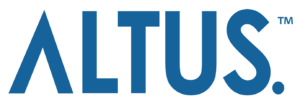While great efforts have been made to address human trafficking internationally and within the U.S., there are still challenges present that individuals and communities can advocate to change.
In addition to the rescue and restoration of victims, we must also take affirmative steps to REFORM the laws and policies, and even entire systems, that impact victims, perpetrators, and vulnerable individuals. There are several types of reforms to understand and pursue, and each is critical to effectively end human trafficking and protect vulnerable populations. The AFRJ® defines reforms with these three categories:
Legal. To participate in legal reforms requires becoming educated about what human trafficking laws exist internationally, within the U.S., and any state or local laws. Learning what laws exist (including the intended v. actual impact of those laws) is helpful to understand where we are strong or where there are gaps in protecting victims, supporting survivors, and deterring those who would harm others.
For example, if a law addresses only sex trafficking, only the trafficking of minors, or only foreign nationals, then there are likely gaps in the laws that need to be addressed. Shared Hope International offers state report cards on juvenile sex trafficking.
Legal reforms also include the legal services available to victims. The Human Trafficking Legal Center offers legal assistance to survivors and existing case laws for review. Law school clinics can offer services to survivors in their community. To understand criminal record relief laws by state that are related to human trafficking, review this Polaris report. Learn what laws exist in your community to know how you can best advocat
Policy. Policies are the ideas or overarching approaches that frame how a government, business, organization, or community addresses certain issues. Consider how to support the efforts of legislators to enact policies that better protect victims and deter both buyers and traffickers. In addition to federal and state policies, communities and businesses can examine their own internal policies that impact how they are – or should be – addressing human trafficking.
For example, businesses and companies can examine their policies regarding transparency in their supply chains – see California Transparency Act for an example. Corporations can also expand their CSR (corporate social responsibility) policies to include human trafficking initiatives and efforts. Organizations working with youth or those serving youth can incorporate human trafficking awareness or training into their orientations. Companies can become part of the Safe Place movement, and communities can become a trafficking free zone. Become informed about the policies of your workplace, of the businesses you frequent, and of your legislators, and advocate for changes to help end human trafficking.
Systems. It is important to understand the many systems that impact the journey of each victim of human trafficking in your community, from the moment they became vulnerable to human trafficking to their rescue and reintegration. These systems can include foster care, juvenile justice, legal, healthcare, and more. Learning how each system intersects with human trafficking, what services exist to support victims, and where there are gaps in services is critical to preventing and ending human trafficking. Communities must evaluate these systems and engage in needed reforms.
Monitoring the impact of reforms is essential to understanding whether efforts are successful or need to be further refined and enhanced with creative solutions.
Engaging with reforms may seem daunting or even overwhelming. However, it is important to understand that without a focus on reforms, all other efforts in the Freedom Strategy may not be able to happen—or may be hindered from accomplishing their intended impact —because there is a change in a local law, a corporate policy, or a system of care that needs to be addressed first. Reforms are essential to the success of ending human trafficking, and they often have the most far-reaching consequences. Communities have a critical role to play in making sure needed reforms occur and continue to take place.
Be encouraged that you can make a difference right where you are, both in your profession and in your community.
- Sign up for Engage Together® emails sent right to your inbox
- Visit www.enagetogether.com/myrole for immediate ways to engage

